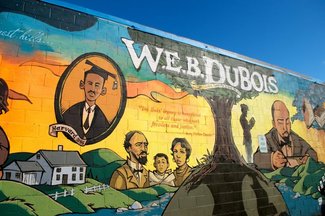 W.E.B Du Bois is appointed Honorary Emeritus Professor of Sociology Tags: du bois, methodology/statistics, prejudice/discrimination, race/ethnicity, theory, africana studies, public sociology, 21 to 60 mins Year: 2012 Length: 36:51 Access: YouTube Summary: On February 17th, 2012 three intellectual panels convened at the University of Pennsylvania in conjunction with the posthumous appointment of Dr. William Edward Burghardt Du Bois as Honorary Emeritus Professor of Sociology and Africana Studies. The video features a wide array of remarks and reflections from a number of intellectuals, including Tukufu Zuberi, Lawrence D. Bobo, Mary Patillo, Anthony Monteiro, Howard Winant, and Elijah Anderson. Excerpts from the video can be readily used to spur discussions about particular aspects of Du Bois' scholarship. The video begins with sociologist Tukufu Zuberi (1:40 to 4:10) outlining many of Du Bois' early accomplishments, including the fact that in 1895 he became the first African American to receive a PhD in history from Harvard University. Highlighting Du Bois' methodological contributions, sociologist Aldon Morris (4:45 to 6:00) discusses Du Bois' advancement of empirical methodologies, and later in the video Zuberi (10:00 to 11:10) notes that Du Bois arrived at a number of his remarkable insights in Black Reconstruction of Democracy in America, despite being barred from primary source materials due racial segregation. Underscoring the enduring significance of Du Bois' work, sociologist Howard Winant (13:40 to 15:10) notes the fact that Du Bois reclaimed the narrative that African Americans were central in the movement to achieve an advanced democracy, and Winant explains that Du Bois' work powerfully argues that Blacks were also centrally involved in their own emancipation. At the 11:10 mark, Zuberi argues for the significance of Du Bois' work in the face of persistent racism within the academy. He notes that despite the fact that Du Bois' work foreshadowed a number of celebrated sociological works from authors like Immanuel Wallerstein, Barrington Moore, Jr., and Theda Skocpol, Du Bois is not cited by these authors. Finally, a number of panelists passionately argue that Du Bois was one of the first truly public intellectuals. For instance, Stephanie Y. Evans (6:00 to 6:50) likens Du Bois to a conductor, facilitating communication and exchange between intellectuals and non-intellectuals alike. At the 6:50 mark, Mary Patillo similarly discusses the way Du Bois' concepts have permeated outside the academy, and how his work has contributed to black studies movements that seek to make connections between campus and off-campus struggles. Submitted By: Tukufu Zuberi
3 Comments
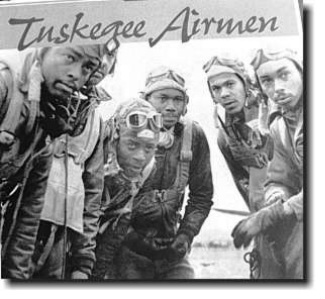 Tags: du bois, inequality, nationalism, prejudice/discrimination, race/ethnicity, theory, double consciousness, the veil, subtitles/CC, 00 to 05 mins Year: 1995 Length: 4:53 Access: YouTube Summary: The Tuskegee Airmen were the first African-Americans to fly in the US armed forces, but were subjected to Jim Crow laws and institutional discrimination. In this clip from a fictional film about the Tuskegee Airmen, Lt. Col. Benjamin O. Davis (Andre Baugher) defends his squadron, which was treated very different than white squadrons of the time. He argues that his "colored pilots" have "carried not only the burden of their dreams of becoming American military aviators but the hopes of an entire people." This is an excellent illustration of Du Bois' concepts of the veil and double consciousness. Looking at his white military superiors through the veil, Davis asks "how do I feel about my country ... and how does my country feel about me?" The veil not only refers to their skin color and seeing themselves through the eyes of others but also features a dimension of citizenship where some do not see Blacks as “true” Americans (i.e. full US citizens), which is forcefully depicted by the Airmen's treatment in the military and their denial of full rights. Similarly, double consciousness refers to a self-awareness of being not only an “American” but also an “African-American.” Through Lt. Davis' account of his squadron, it is clear that the the pilots were fully aware of themselves as proud Americans serving their country, but with a simultaneous awareness of being treated differently as African-Americans. In addition to asking students how this clip illustrates these concepts, it can also be a useful video for exploring race and nationalism. Submitted By: Paul Dean 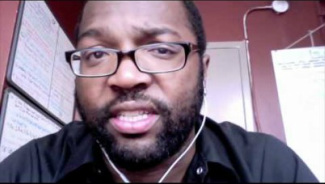 Baratunde Thurston expresses a double consciousness Baratunde Thurston expresses a double consciousness Tags: du bois, immigration/citizenship, inequality, prejudice/discrimination, race/ethnicity, theory, double consciousness, jim crow, white supremacy, 06 to 10 mins Year: 2011 Length: 7:05 Access: YouTube Summary: In this YouTube video, Baratunde Thurston vehemently declares the release of President Obama’s birth certificate an outrage and indicative of the continued existence of a white supremacy in the United States. He discusses the implications and meaning behind the release of the birth certificate, and briefly discusses the messages conveyed to the American public through the wealthy White man who took credit for stirring up the Birther controversy, Donald Trump. He argues that the demand that President Obama release his birth certificate in order to prove he is eligible to run for the Presidential office is racially motivated. One could liken the request for Obama to produce a birth certificate to similar demands on Black Americans to pass literacy tests in order to vote during the Jim Crow era. This video could be used to introduce students to Du Bois's concept of a double consciousness. In The Souls of Black Folk, Du Bois wrote, "One ever feels his two-ness—an American, a Negro; two warring souls, two thoughts, two unreconciled strivings; two warring ideals in one dark body, whose dogged strength alone keeps it from being torn asunder" Du Bois was articulating the experience of African Americans as being both insiders and perpetual outsiders to the nation; as being American but the wrong type of American. Thus, even after being elected to the highest, most respected American office, Barack Obama was still asked to prove that he belongs to the American nation. Submitted By: Beatrice Sorce 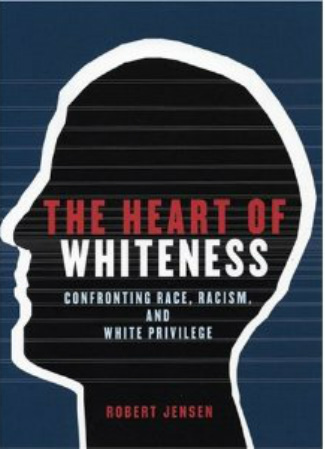 Robert Jensen draws on W.E.B. Du Bois to discuss race and racism Tags: du bois, inequality, multiculturalism, prejudice/discrimination, race/ethnicity, theory, colorblind racism, institutional racism, post-racial America, unconscious racism, white privilege, white supremacy, 21 to 60 mins Year: 2009 Length: 52:39 Access: YouTube Summary: In this lecture, Robert Jensen, author of The Heart of Whiteness, argues that the U.S. is a white supremacist society, both ideologically and materially. He begins with a passage from W.E.B. Du Bois's Souls of Black Folk where Du Bois reflects on being asked by whites how it feels to be a problem. Jensen turns this question around and argues that the problem of racism is the problem of whites. He asks instead, "For those of us who are white, how does it feel to be a problem?" This video is useful for supplementing discussions related to racism and particularly white privilege, and the clip might work well in tandem with an interview Tim Wise recently gave on the Tavis Smiley show. The actual lecture is about 28 minutes, and the remaining 24 minutes is a discussion with Jensen's students. Submitted By: Kendra Barber 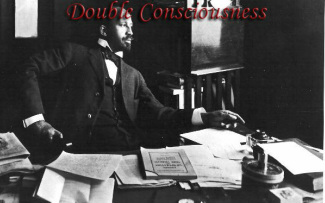 Tags: class, du bois, intersectionality, race/ethnicity, black middle class, double consciousness, the veil, subtitles/CC, 06 to 10 mins Year: 2001 Length: 7:43 Access: No online access Summary: This is another clip from People Like Us: Social Class in America (start 42:55; end 50:37). It explores issues of race and class among the Black Middle Class. It documents the tensions of upwardly mobile African Americans who want to achieve the celebrated (middle class) position of the American mainstream, but at the risk of losing their black culture and identity. It is a good demonstration of Du Bois' concepts of the veil and double consciousness among a group that is aware of their own Black identity, but also aware of how mainstream White culture views them and the challenges they face as African Americans. Submitted By: Paul Dean |
Tags
All
.
Got any videos?
Are you finding useful videos for your classes? Do you have good videos you use in your own classes? Please consider submitting your videos here and helping us build our database!
|
 RSS Feed
RSS Feed
